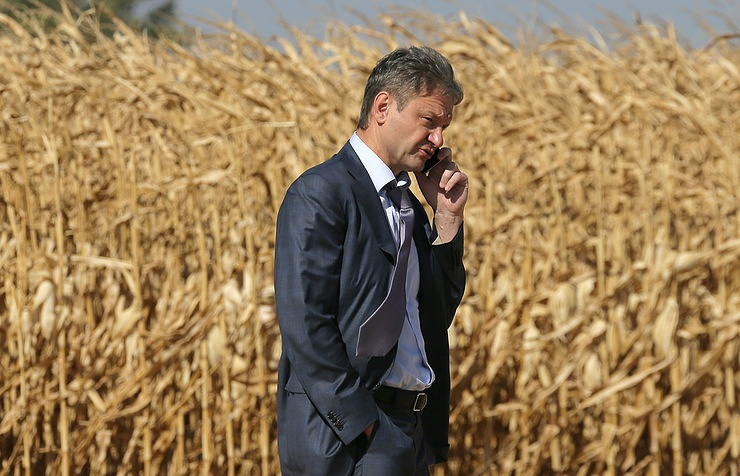The Russian agriculture should not be afraid if the food products’ embargo is lifted for the countries, which had imposed sanctions against Russia, as the Russian products are quite competitive, Russia’s Minister of Agriculture Alexander Tkachev said in an interview with the Rossiya 24 television channel on Sunday.
“Nobody can be sure whether the sanctions are lifted in late 2017,” he said. “We are interested in having them kept for another five years. But even if they are lifted, nothing frightful will happen.”
“First of all, we are quite competitive, the level of support from the state is big: the average profitability of an agricultural company is about 20% in Russia in case of state support, and 10% without it. Secondly, the devaluation: we should not forget, the dollar rate is not 30 (rubles for a dollar) already, but 60. In the long run, if we compare the price in dollars, it is higher. And, besides, the most important – the Russian consumers are now happy to be looking for Russian-made goods at shops.”
The minister continued saying lifted food embargo would not fail the Russian market, as in many sectors Russia does not require imported goods now.
“As for pork – we now do not require any import, we have closed that niche. As for poultry – the situation is similar. We are providing for our demand in sugar, buckwheat, potato and oil,” the minister added.
For incorporation of Crimea after a coup in Ukraine in early 2014, Russia came under sanctions on the part of the United States and many European countries. The restrictive measures were soon intensified following Western and Ukrainian claims that Russia supported militias in self-proclaimed republics in Ukraine’s southeast and was involved in destabilization of Ukraine.
As countermeasures, Russia imposed on August 6, 2014 a one-year ban on imports of beef, pork, poultry, fish, cheeses, fruit, vegetables and dairy products from Australia, Canada, the European Union, the United States and Norway. Recently, Russia extended the embargo to end of 2017.
The Russian authorities have repeatedly denied accusations of “annexing” Crimea, because Crimea reunified with Russia voluntarily after a referendum.
A system of import substitution had to be introduced in Russia in connection with imposition of Western sanctions on Russia for developments in Ukraine and Moscow’s countersanctions.
